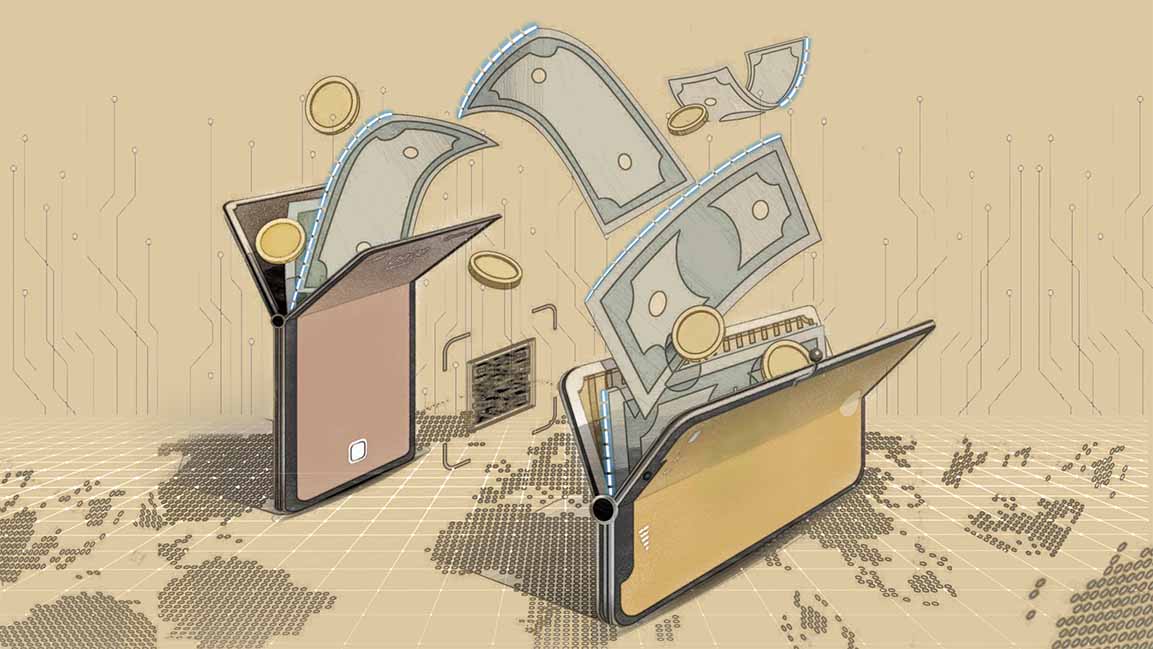- | 9:00 am
UAE is launching an instant payment platform. And it may revolutionize transactions
Experts say, the UAE Instant Payments Platform scheme, set to launch later this year, will offer individuals and businesses the convenience of a RTP mechanism

The last couple of years profoundly affected every facet of our lives. One of the things that lockdowns during the pandemic have taught us is the need for an instant mechanism to transfer funds.
The UAE is about to roll out a real-time payment platform, which experts say will benefit people, businesses, and the country.
Real-time payment mechanism (RTP), the instantaneous transfer between two bank accounts, is unlike other prevalent electronic transfer mechanisms.
According to the latest Financial Stability report from the Central Bank of the UAE (CBUAE), the Instant Payment Instruction System (IPI), which offers real-time instant domestic fund transfers in the country, witnessed a significant increase in transaction volumes. In 2021, IPI clocked about 21.1 million transactions.
FILL IN THE BANKS
The IPI, which debuted in 2019 as an interim RTP solution, facilitates immediate payments but is available for only eight hours a day, five days a week. And while card-based mechanisms offer the convenience of making payments 24×7, they are limited to Person-to-Merchant (P2M) purposes only.
The UAE Instant Payments Platform (IPP) scheme, set to launch later this year, will bridge this gap, offering individuals and businesses the convenience of an RTP mechanism.
IPP can trace its roots back to 2018 when CBUAE unveiled its National Payment Systems Strategy (NPSS), where one of its objectives was to roll out a 24×7 payment mechanism.
“As a part of the NPSS, UAE IPP will lay the groundwork for the transformation of the financial services ecosystem across the country,” says Santhosh Rao, Senior Vice President, Sales, MEASA, ACI Worldwide, a real-time payment software provider.
CREATING NEW PAYMENT MODELS
RTPs aren’t just convenient to use but also act as a catalyst for economic growth. Explaining the connection, Rao points to a Prime Time for Real-Time report that says RTPs have helped unlock $166 million and $246 million of economic output in Saudi Arabia, Bahrain, and the UAE.
“Instant payments increase the rate of digital money transfer between people, creating new payment models for small businesses as well as larger ones,” says Kartik Taneja, Executive Vice President, Head of Payments & Consumer Lending at Mashreq Bank. “Switching more payments out of cash into digital lowers the cost of payments. And increasing the velocity of money in the economy translates directly to GDP growth.”
INNOVATION IN REAL-TIME PAYMENTS
To help IPP enable instant transfers between all domestic bank accounts around the clock, UAE has made it mandatory for all banks to implement the mechanism. Rao explains that to comply, banks must connect to the scheme and offer instant payments to their customers.
“As a 24×7 instant payments scheme, the IPP enables use cases that don’t exist in the country today,” says Rao. He says that while the most obvious use case for real-time payments would be between people (P2P), the real innovation will happen in the customers making payments to businesses (C2B) space and in business-to-business (B2B) transactions.
“Leveraging Request for Payment (RtP) along with e-invoices for collections also hold the potential to deliver immense value to organizations,” adds Rao. He says being part of the IPP scheme will allow banks to leverage real-time payments to enhance the banking experience for existing customers by offering new services and speeding up financial inclusion in the country.
Saad Ansari, CEO and co-founder of Xpence, a financial services platform, says IPP will give consumers more choices on how to pay and improve liquidity for businesses and sprout a new ecosystem of innovative fintech solutions to the market.
There are many examples of this around the world. In India, the UPI scheme enables real-time payments using QR codes, mobile numbers, and virtual IDs; in Sweden, real-time payments are used in local coffee shops, and in the UK, it’s used for one-off bill payments, says Rao. He adds that Brazil’s instant payment ecosystem (Pix) offers a faster and more affordable alternative to traditional payment instruments, such as bank slips and ATM withdrawals, while allowing businesses to pay their suppliers in real time.
In the same vein, Ansari shares that IPP will open several new payment-acquiring options for merchants, such as direct debits, QR codes, and more. “We are also excited about IPP’s impact on cross-border payments, which is a real pain point for businesses today.”
WHAT ABOUT SAFETY?
One of the biggest factors that curtail the adoption of digital payment mechanisms, from credit cards, and mobile wallets to RTP schemes like IPP, especially among people, is the fear of fraud.
According to the ACI report, over one in three (36%) UAE-based respondents admitted to being a victim of payment fraud. Almost half (48.9%) of these victims stated the fraud was related to credit cards, either stolen cards (38%) or skimmed (10.9%), while 19.6% had their bank accounts hacked.
There’s an entire section for fraud management within the IPP. He explains the scheme has provisions for value-added services and real-time transaction monitoring tools that cover everything from money laundering to fraud management.
These controls and checks, Rao insists, will help enhance the overall level of compliance with transactions and provide the regulators with a broader overview of payments being processed through the IPP. “This is to ensure greater security and consumer experience for the service users,” he says.
IPP will be rolled out in phases, with the pilot launch of the first phase set to go live later this year. The second phase, planned for Q2 2023, will further enhance the service by introducing functions such as direct debit and overlays like e-cheque clearing, which will continue in phase three, scheduled to go live in Q4 2023.
While a sizable proportion of payments activity in the UAE is cash-based, the positive uptake of 2019’s IPI scheme, despite its limitations, acted as a catalyst for the introduction of IPP. Rao says this will provide a much-needed boost to UAE’s real-time payments market and eventually transform the broader financial services ecosystem in the UAE.
“The UAE IPP will be one of the driving forces behind digitizing the country’s economy in the coming years,” says Ansari.







































